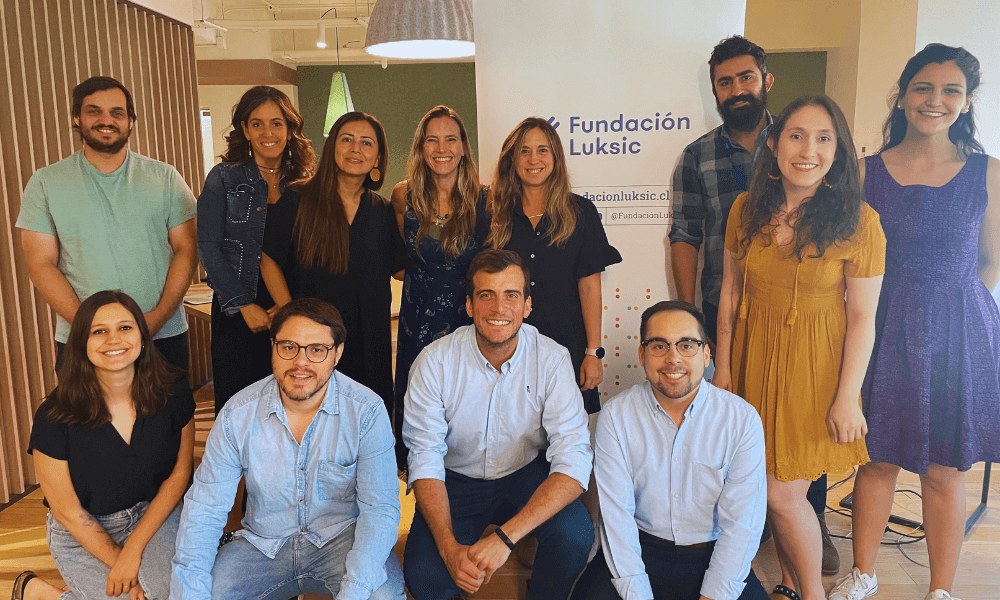The event was attended by representatives of 13 public and private institutions that work to promote and strengthen entrepreneurship in Chile, such as Corfo, Fosis, Sercotec, ASECH, G100, Endeavor, Balloon Latam, Chile Converge, among others.
Cristián Schalper, director of the Entrepreneurship area of Fundación Luksic, presented the objectives and scope of the Impulso Chileno program that, since 2018 in its four editions, has supported with financing, training and personalized mentoring to more than 400 entrepreneurs from all over the country. The exhibition presented the main results of the measurements and evaluations of the program that the Foundation currently implements together with the UC School of Management and the Simon de Cyrene Corporation.
Of the 100 winners of the third edition, a total of 94 entrepreneurs answered an entry survey and an exit survey one year later. The main findings indicated that there was an 83% increase in the average monthly sales, an increase in the average number of paid workers in their microenterprises and in terms of financial health, they reported improvements in the management of their income, both at family and business level.
It should be noted that this year, the J-PAL Research Center began designing an impact evaluation, which will measure the effects of the program on the 250 winners of the fifth version of Impulso Chileno, which will be announced at the end of January 2023. To this end, the impact on the new beneficiaries of the program will be compared with a control group that is not part of the program.
Cristián Schalper valued and thanked the participation of the different institutions in this discussion: “As an ecosystem, we have great challenges and collaborative work is undoubtedly fundamental. Sharing good practices, knowledge and acquired experiences greatly enriches the different initiatives that we all carry out to continue empowering Chile’s entrepreneurs with more and better tools”.
Post-conversation impressions
Tadashi Tadaoka, project director at Socialab, commented on the value of the Foundation in betting on a group of entrepreneurs in the early stages and providing them with a seal of quality. “One of the key issues is the generosity of the Foundation in openly showing the results and opening the box of how one does these processes. For such a complex problem, such as achieving a social impact on entrepreneurs, it is interesting to take the opinion and view of many of us who face it in different ways. I distrust a single treatment model and trust in this collective intelligence that allows us to evaluate what things are working and how they can be replicated over time”.
In turn, Julio Rojas, in charge of Innovation at Fosis, agrees that collaboration is key given that the public sector does not have all the tools to solve all the problems faced by entrepreneurs. “From the private sector, academia and foundations, there is a greater possibility of materializing ideas and generating project evaluations that can be transformed into an offer for the entire ecosystem that allows the public sector to insert it into one of our programs. Impulso Chileno’s evaluation model is a source of inspiration; it is something we are following and want to replicate”.
Josefa Villarroel, who took over as executive director of G100 Chile, also gave her impressions: “What I value most about Impulso Chileno is the way they invite entrepreneurs, which is an open and democratic call to access a high quality program. It is undoubtedly a differentiating element within the offer that exists in the ecosystem. One of the challenges is to work in a more coordinated way and to be able to link efforts among the different institutions of the entrepreneurial ecosystem in Chile. of Chile’s entrepreneurial ecosystem.
Policy Brief
In the following document, you can review the cycle of evaluations of the Impulso Chileno program and its main results.

